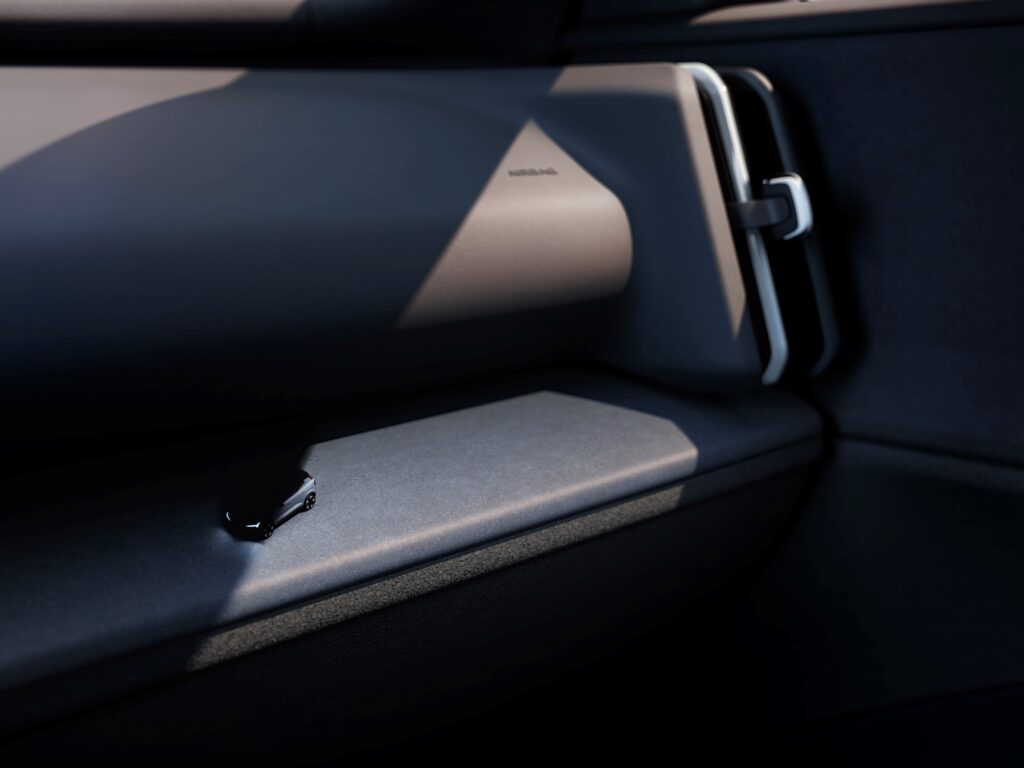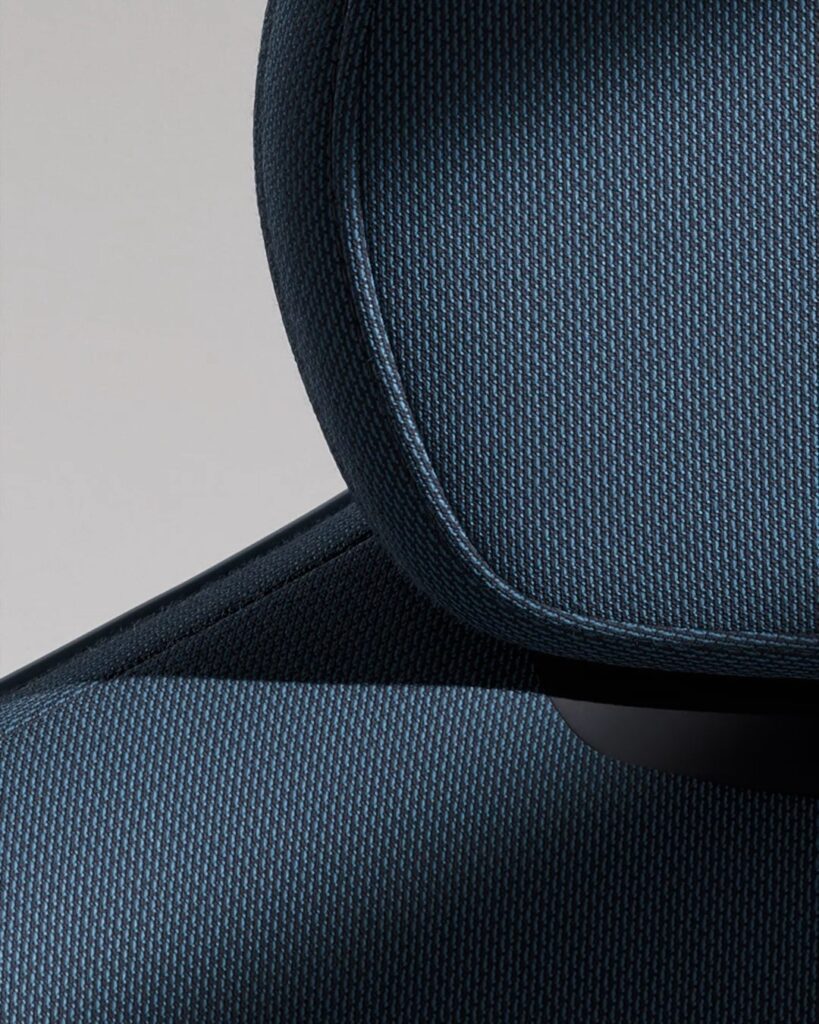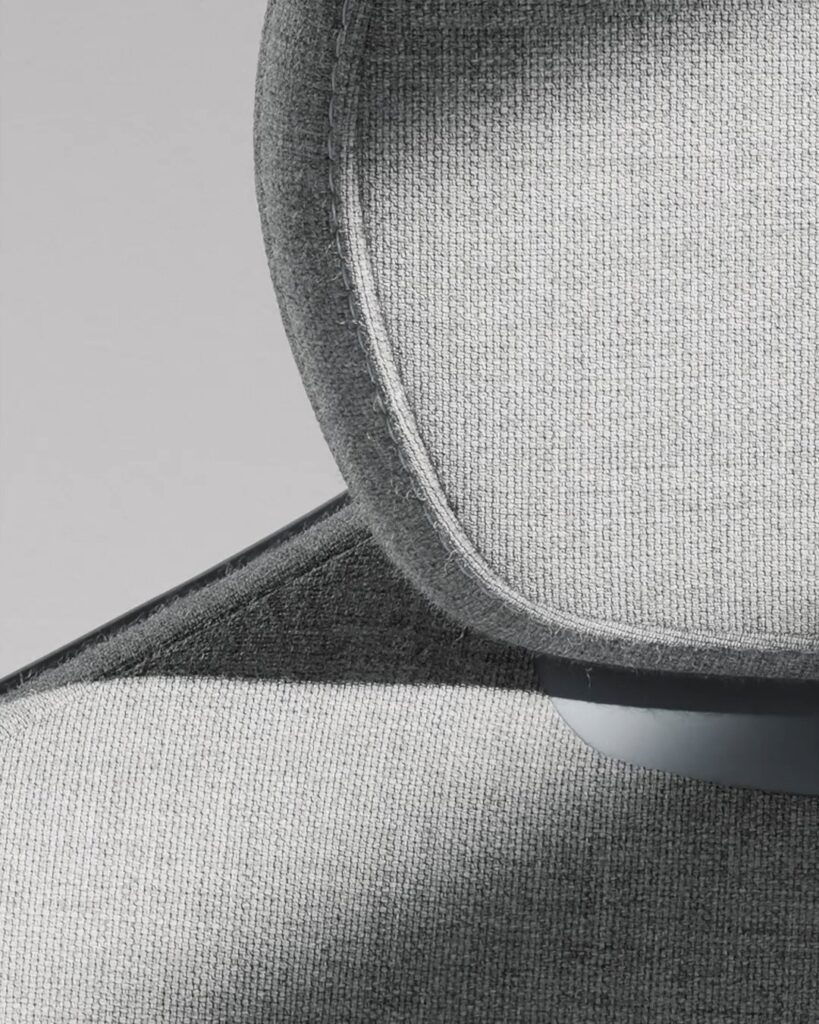The all-electric Volvo EX30 small SUV is poised to make a remarkable impact in the automotive industry, as it sets out to have the lowest carbon footprint of any Volvo car to date. This innovative vehicle embodies the finest attributes of Volvo Cars, offering a compact, fully electric SUV designed for the modern era with an unwavering commitment to safety and a significantly reduced CO2 footprint.
Through comprehensive measures undertaken during production, the car’s total carbon footprint has been brought down to below 30 tonnes over a driving distance of 200,000 kilometers. This achievement marks a 25 percent decrease compared to Volvo’s fully electric C40 and XC40 models, exemplifying the company’s commitment to reducing overall CO2 emissions per car by 40 percent between 2018 and 2025.
The EX30’s fully electric nature translates into zero tailpipe emissions, contributing not only to a lower CO2 footprint but also to improved air quality. Recent research conducted by the University of Southern California revealed that even a slight increase in the number of electric cars in an area has a direct positive effect on the reduction of emergency room visits due to asthma, underscoring the tangible benefits of electric vehicles beyond carbon reduction.
However, simply electrifying a vehicle is not sufficient to mitigate its carbon footprint comprehensively. Recognising that a car’s impact spans its design, development, production, and transportation phases, Volvo has actively sought opportunities to minimise greenhouse gas emissions throughout these stages.

Anders Kärrberg, Volvo’s global head of sustainability, expressed the significance of the EX30 in their sustainability ambitions, stating, “Our new EX30 is a big step in the right direction for our sustainability ambitions. By 2025, we aim to reduce our overall CO2 emissions per car by 40 percent from 2018 levels through a 50 percent reduction in overall tailpipe emissions and a 25 percent reduction in emissions from our operations, raw material sourcing, and supply chain, ultimately working towards our aspiration of becoming a climate-neutral company by 2040.”
To achieve the notable reduction in the carbon footprint of the Volvo EX30 compared to its electric counterparts, various strategies have been employed. First and foremost, the car’s smaller size requires less material for production, notably reducing the usage of aluminum and steel, which are significant contributors to production-related CO2 emissions. Additionally, a higher proportion of these materials used in building the EX30 are recycled, with approximately 25 percent of the aluminum and 17 percent of the steel being sourced from recycled content. This commitment to incorporating recycled materials extends to the car’s interior, where around 17 percent of the plastics, from interior components to exterior bumpers, are derived from recycled sources, setting a new record for any Volvo car thus far.
Moreover, sustainable design principles guided the optimization of the EX30’s components, resulting in multifunctional elements that combine multiple functionalities within a single part. By reducing the number of parts needed without compromising functionality, Volvo has succeeded in further reducing the car’s environmental impact.
Sustainable manufacturing practices and supply chain management are integral aspects of Volvo’s emission reduction strategy. The EX30 will be manufactured in a factory powered by a substantial amount of climate-neutral energy, including 100 percent climate-neutral electricity. Furthermore, Volvo has collaborated with its Tier 1 suppliers, with 95 percent of them committing to achieving 100 percent renewable energy in their production by 2025, exemplifying Volvo’s commitment to extending emission reduction efforts throughout its supply chain.
The production process for the Volvo EX30 has undergone various streamlining measures, resulting in one of the highest rates of material utilization in stamped body parts during manufacturing. To ensure material traceability, particularly during the production of battery
packs, Volvo has implemented blockchain technology to facilitate the tracking of critical raw materials, including lithium, manganese, cobalt, graphite, and nickel.




In the EX30’s interior, Volvo has embraced a wide range of recycled and renewable materials for seats, dashboard, and doors. Notably, materials such as denim, flax, and a wool-blend containing approximately 70 percent recycled polyester are utilized. The denim material, in particular, showcases Volvo’s innovative approach to using materials in smarter and more sustainable ways. By employing fibers that would otherwise be waste products of the denim recycling process, Volvo repurposes short fibers that are typically discarded, thereby reducing waste and utilizing resources more efficiently.
The Volvo EX30’s commitment to sustainability extends beyond its manufacturing phase. At the end of its lifecycle, the car is designed to achieve a recovery rate of 95 percent, ensuring the recycling of materials and the extraction of energy from non-recoverable components.
In summary, the Volvo EX30 represents a compelling option for customers looking to downsize their environmental impact without compromising safety, driving comfort, or convenience. With its exceptional carbon reduction efforts across its lifecycle, from design and production to end-of-life recovery, the EX30 embodies Volvo’s dedication to environmental stewardship and sustainability.
The highly anticipated unveiling of the Volvo EX30 is scheduled for June 7th, with orders or pre-orders becoming available in selected markets on the same date. This small electric SUV is poised to revolutionize the automotive landscape, providing consumers with a vehicle that prioritizes both their driving experience and the health of our planet.


